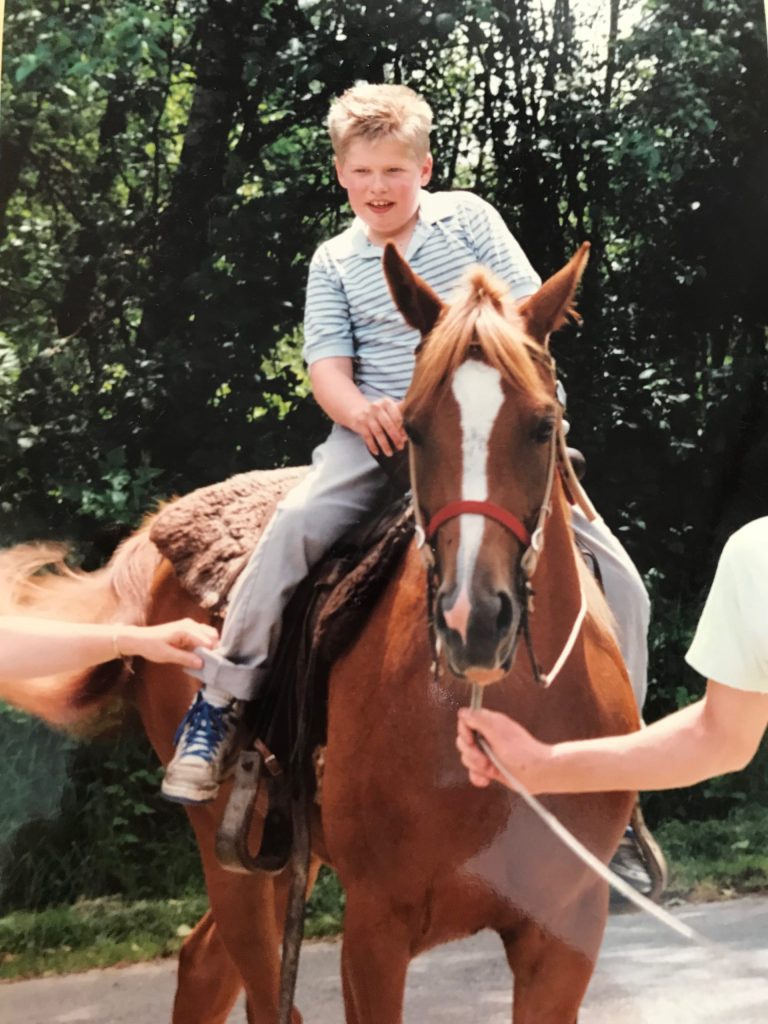Nick is a great example to me. One thing that was obvious from the first time he started physical therapy when he was a year old was that he was willing to try new things. He is open to new experiences and challenges.
I often will look at the task at hand and determine in my mind whether I will be successful in that endeavor or not. Then often I won’t even try. Nick is not like that. He will go ahead and try, then see what will happen. I believe that his willingness to try new things is one of the biggest factors in his amazing accomplishments. Originally his doctors didn’t think that he would be able to walk or talk or do many of the things that he does.
Just because he tries something however, doesn’t mean that he likes everything. I posted this picture of him riding a horse because that is one example of something that Nick doesn’t like to do. He really enjoyed riding his plastic rocking horse, but riding a real horse is not the same. He tried it in July 1990 and again about 8 years later. After that he will tell us, “No my like riding a horse.” He did try riding a horse a couple of times and it is not his thing. Even when we had horses, he liked petting them, he didn’t want to go for a ride. He can’t really articulate why he doesn’t like it, but he does let us know that he doesn’t want to. And that is just fine with us.
Another thing he tried was ice skating. He only tried it once for about 5 minutes. I took him around the rink one time. He got off after the first time around and refused to get back on the ice. Sometimes when we are all skating, we will ask him again if he wants to come out with us, just to watch him skate his head emphatically and say, “no I fine, I sit here, OK? I just watch, OK?” He really didn’t like it, but he did try it.
When he was younger, (and smaller) he was in a program called Ski For All. The program is now called Outdoorsforall. Ski instructors with specialized training would give individual lessons to those with special needs during ski season. He loved that while he could still do it. Over time, his physical capacity made it impossible to continue with the skiing, but he still sometimes talks about skiing down the hill very fast. He tells us that it was fun.
I am grateful that Nick is an example of being willing to try new things and to discover through that process what things are fun to do and what things are not. I try to be open. It is not always easy, but it is definitely enriching to my life when I am.
Please share this blog if it resonates with you or you know someone who might benefit from it. If you want to get a copy of the book as soon as it is available, click here to sign up.


